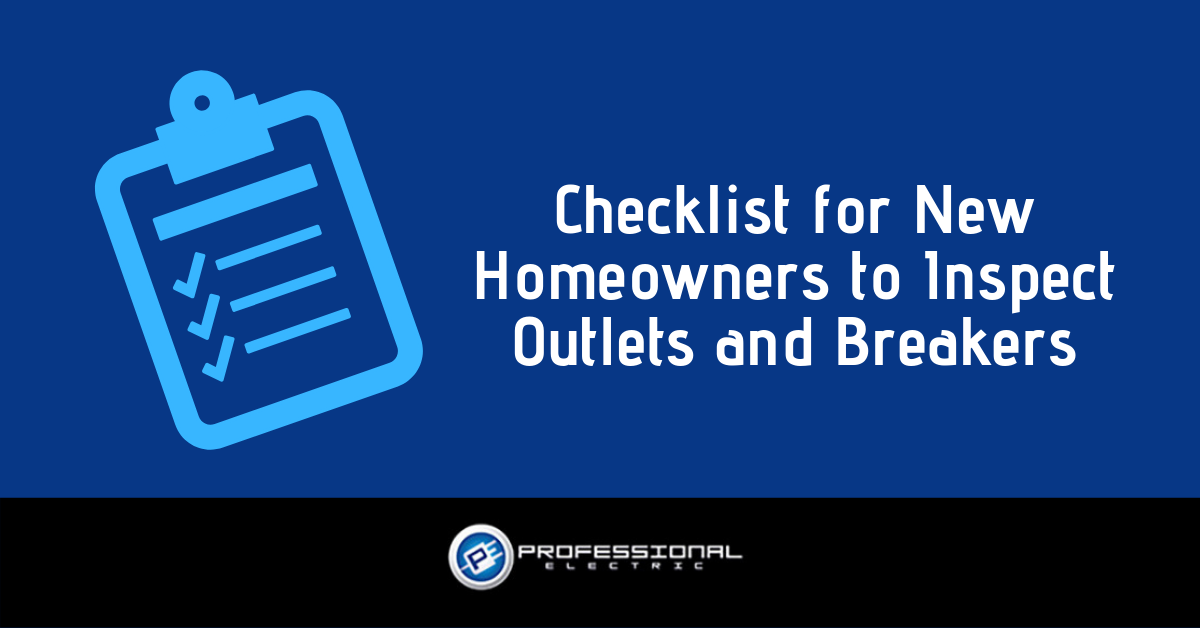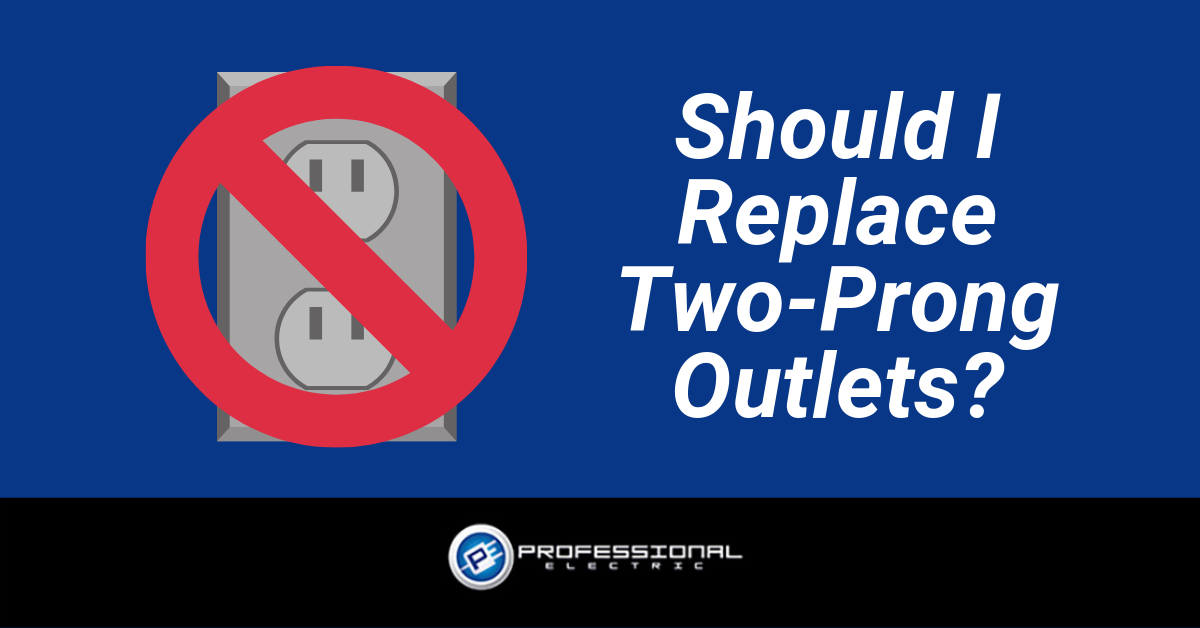Purchasing a new home is an exciting time! Although the move in the process can seem overwhelming, there is so much to look forward to. Before moving in, it’s important to inspect the home thoroughly to ensure your home is safe and move in ready. If you’re not sure where to start, don’t fret. Below is a checklist for new homeowners to use when inspecting areas of their new home.
Electrical Service Panel
You can find an electrical service panel in every home. They are typically located on the home’s exterior, in the garage or in the basement. The panel should be checked for any residue and damage. If any fuses are outdated, give Professional Electric a call to replace the circuit breaker switches.
Check the Wiring
The round fuses in the service panel will give clues as to how old the home’s wiring is. Houses that were built before 1950 may have knob-and-tube wiring. Homes built between 1965-1973 may contain aluminum wiring. As a homebuyer, you need to be aware of any wiring that needs to be replaced to help improve your home’s safety.
Outlets in Wet Areas
Now it’s time to head to the kitchen and the bathrooms. It’s critical to have ground fault circuit interrupters installed in any wet areas. Light switches should also be several inches away from water. Ground fault circuit interrupters should be tested periodically by homeowners and should be checked during your home’s walkthrough.
Interior Outlets, Light Switches, Appliance Chords
Interior outlets, light switches, appliance chords and ground fault circuit interrupters should be tested and inspected often. Be sure to tighten any loose outlets or replace them. Check them for any black smoke and to see if they are cool to the touch.
Test Detectors
Before moving in, test all of your smoke and carbon monoxide detectors. The home needs to have a well-working smoke alarm and carbon monoxide detector, so remembering to test these is critical. Lastly, change any batteries if needed or purchase new alarms.
To avoid dangerous situations, make sure you are thoroughly checking all breakers and outlets. If you discover any of the issues listed above, be sure to call a licensed electrician to analyze the problem. Our electricians are licensed, insured and bonded to provide the best knowledge and leave you feeling safe and secure in your new home.
If you are in need of any residential or commercial electrical services or have an electrical issue in Baldwin County or Mobile, Alabama, look no further than Professional Electric! Visit us online at www.ProfessionalElectric.biz and connect with us on Facebook and Twitter! We are available 24/7 for emergency services. Call us at (251) 473-5788. Remember, when it comes to your electrical needs, Keep It Professional!


